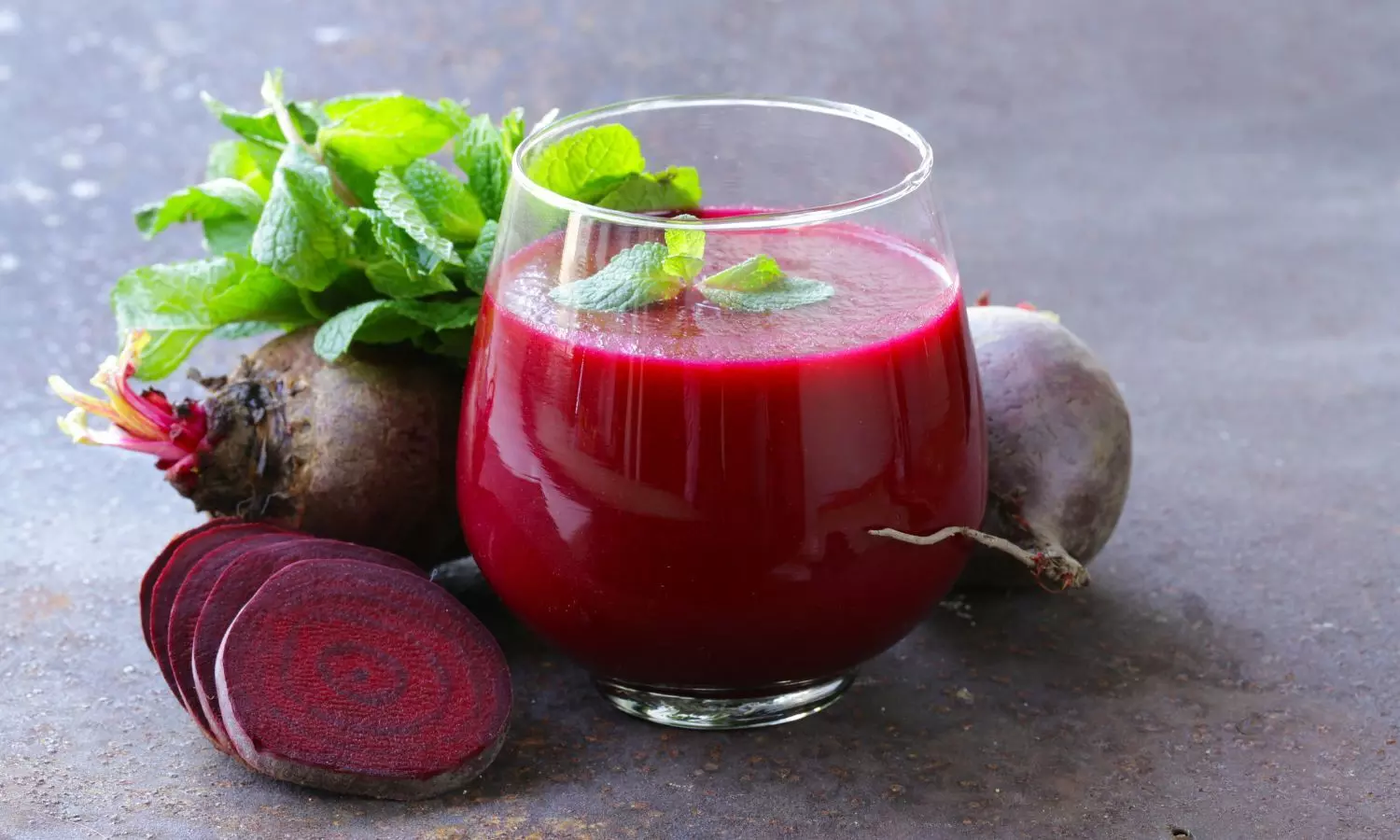Beetroot Juice May Help Lower Blood Pressure Among Older Adults, Study Finds

New Delhi: Drinking beetroot juice may help reduce blood pressure in older adults, according to a recent study conducted by researchers at the University of Exeter in the UK. The research suggests that the blood pressure-lowering effects of beetroot juice are linked to specific changes in the oral microbiome—the community of bacteria that live in the mouth.
Beetroot is naturally rich in nitrate, a compound found in many vegetables, which plays a vital role in supporting blood vessel health. When consumed, nitrate can be converted into nitric oxide, a molecule that helps relax and widen blood vessels, thereby improving blood flow and lowering blood pressure.
In the study, participants were divided into two age groups: 39 younger adults under the age of 30 and 36 older adults in their 60s and 70s. Each participant took a concentrated beetroot juice shot twice a day for two weeks. They also spent another two-week period consuming a placebo version of the juice that had the nitrate removed.
The results showed that only the older adults experienced a significant drop in blood pressure after consuming the nitrate-rich beetroot juice. Researchers believe this is due to age-related changes in the oral microbiome. In the older group, the juice led to a decrease in levels of potentially harmful mouth bacteria, such as Prevotella, and an increase in beneficial bacteria like Neisseria, which help convert nitrate to nitric oxide more effectively.
Professor Andy Jones from the University of Exeter said, “This study shows that nitrate-rich foods can alter the oral microbiome in a way that reduces inflammation and lowers blood pressure in older people. It opens the door to further studies on how factors like age and biological sex influence responses to dietary nitrate.”
An imbalance in oral bacteria can reduce the body's ability to convert dietary nitrate into nitric oxide, which is essential for blood vessel function and blood pressure regulation. By restoring this balance, beetroot juice appears to support cardiovascular health in older adults.
Professor Anni Vanhatalo, another researcher involved in the study, added, “The good news is that if you don’t enjoy beetroot, there are many other nitrate-rich vegetables you can include in your diet, such as spinach, rocket, fennel, celery, and kale.”
The findings, published in the journal Free Radical Biology and Medicine, highlight the potential of dietary strategies to support healthy aging and cardiovascular function.


